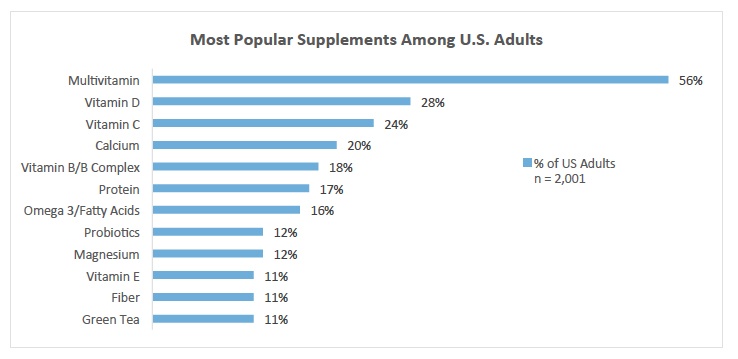The survey of 2,000 consumers conducted Aug. 24-28 by Ipsos Research also found an 87% confidence level in vitamins/minerals, 64% confidence in specialty supplements, 63% confidence in herbals/botanicals, 53% confidence in sports nutrition and 45% in weight management.
Trust in the industry was highest among those ages 18 - 34 with 80% expressing trust. Some 79% of the 35 - 54 age group expressed trust and the trust number dropped to 69% for those 55 and older.
In terms of use, 41% reported they take supplements regularly and take a variety of vitamins, minerals and/or herbal products or specialty supplements. Only 13% of respondents said they have never taken a supplement. Meanwhile, regular use among those 55 or older at 69% is at its highest level since 2010.
When it comes to purchasing supplements, 58% of supplement users identified price as the most important factor. Yas cautioned against assuming that means "low cost," as it may simply mean "right price" and said further research would be done next year on this quesiton.
The supplement facts box was an important factor to the buying decision of 40% of the respondents. Only 34% considered a quality seal on the bottle most important (i.e. NSF, UL, USP); 33% considered the number of servings in the bottle; and 33% looked for specific branded or generic ingredient(s).
Vitamin D and magnesium registered upward trending consumption and in one quirky twist, fiber intake was up in the youngest age group, but declined in the 55 and older population.
Vitamins rank as the most frequently consumed supplement with 75% of U.S. adults saying they take them. Specialty supplements are consumed by 38%, herbal botanicals by 29%, sports nutrition by 22% and weight management by 15%. A more specific breakdown by supplement type and reasons for taking them are shown in the charts below.












